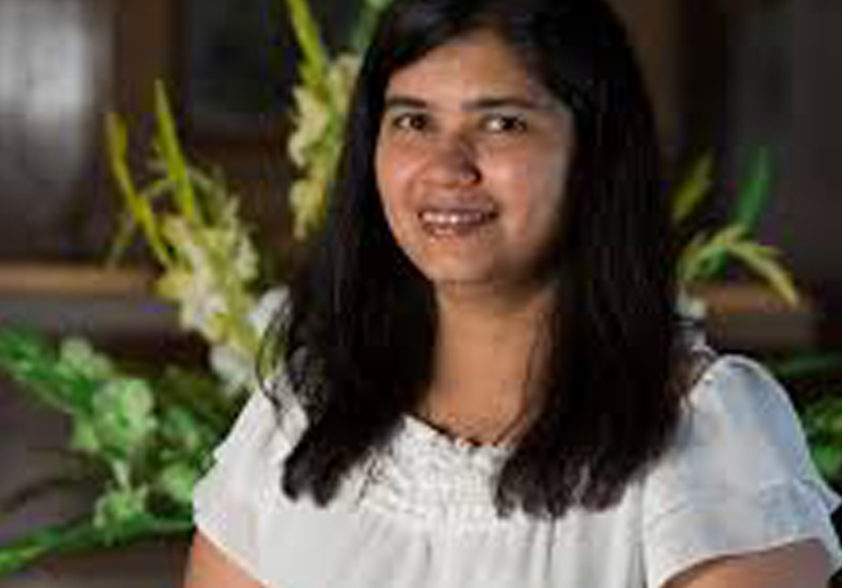Women Peacebuilders I Infocus: ElsaMarie D’Silva

While we head towards International Youth Day on 12th August, Safecity is taking this opportunity to honour women peacebuilders through this series on Women Peacebuilders. We invited women peacebuilders to speak of their experience of using different tools towards peacebuilding in an attempt to showcase the massive change women leaders are bringing towards developing peace and to build collective learnings for those who want to be engaged in peacebuilding processes.
Series curated by Vandita Morarka
Edited by Renita Siqueira
Most of us remember the December of 2012 with the Delhi gangrape and shivering bones on the streets of Delhi. We couldn’t have understood Jyoti’s suffering entirely but when the pieces of her assault came together we were devastated. When she succumbed to her wounds we took to the streets to demand justice and thought our part was done but Elsa Marie took a step ahead and gave us something hopeful to remember from that time.
ElsaMarie D’Silva is currently the Founder & CEO of Safecity. An experienced aviation professional for around 20 years, she shifted to the social sector due to her interest in bringing about social change to improve the lives of women, youth and senior citizens through awareness, interaction and education
What got you started on your peace journey?
Elsa: I have worked in the aviation industry for close to 20 years. I was a part of the Kingfisher airlines when it shut down in 2010. I was finding my purpose in the world when the gang-rape in 2012 occurred. The incident pushed me forward to focus on empowering women and youth using technology and to contribute to peace building. It was the impetus for me to start Safecity.
Could you give us a brief background of your work?
Elsa: I wanted to make personal experiences of sexual harassment and abuse in public spaces available in the public domain so I chose to have a crowdmap. The public is free to give anonymous information and/or mark hotspots on our crowdmap of places they’ve been exploited.
We have collected over 10,000 stories over 50 cities in India, Kenya, Cameroon and Nepal. We have worked in 10 neighbourhoods around Mumbai and Delhi which has improved the lives of more than 1500 families. We have worked on college campuses and done workshops for around 13,000 people. Directly and indirectly we have engaged with 300,000 people through social media (Twitter, Facebook), our website and on-the-ground campaigns. We’ve used art in many places to inform communities why staring and other types of sexual violence is not appropriate behaviour. We’ve also used the medium of theatres to inform and educate people. We’ve done a lot of safety audits, the recent one being along the railway lines in Mumbai. It was based on the data that has been on our crowdmap. The safety audit findings and recommendations are submitted to the Ministry of Railways. We have also done street market audits based on the hotspots marked on our map of Mumbai and that has been submitted to the Chief Minister of Maharashtra’s office. We’ve had over 100 press mentions and over 150 articles, we have worked with over 500 volunteers. Our bloggers not only write for Safecity but also for other organisations with similar causes.
What we’ve done is, we are trying to establish models where crowd-sourced data can be used to make civic change not only by institutions like police and municipality but also by communities.
How have you engaged with the youth towards peace building?
Elsa: We work a lot with college and high school students, we provide them with info on sexual violence, the legislation, their rights and the redressal mechanism in case they are ever harassed or abused. We also encourage them to report on Safecity and join volunteer programmes and work either as campus ambassadors or bloggers, graphic designers, data analysts or handle social media. Through these programmes we have observed that the youth have increased leadership skills, they feel confident about themselves, talking about issues and managing projects.
What are the challenges that you have faced?
Elsa: The challenges we’ve faced is that a lot of people, a lot of youth readily volunteer but they aren’t committed to what they’ve said. On the other hand, we’ve also found a lot of brilliant people and they’ve further joined our team.
I would encourage the youth to volunteer as it is a great activity to explore the various works available for them and how by showing commitment and integrity they can build their own personality, credibility and work ethic.
How do you think the youth can be leveraged better towards peace building?
Elsa: One is to incorporate the youth in your vision and explain it to them. Ask them to design a project that they would manage, provide them with guidance, give them the flexibility to implement and execute it. Help them develop their own projects which will eventually meet your expectations and the needs of the organisation.
You need to have patience while managing them as a lot them have their own style and personality. You can have periodic reviews with them to discuss what is working and what is not working and to fine tune the way it works.
Connect with us?
Send us your feedback or nominate a young woman peacebuilder you know of, write to us at [email protected]/[email protected]

